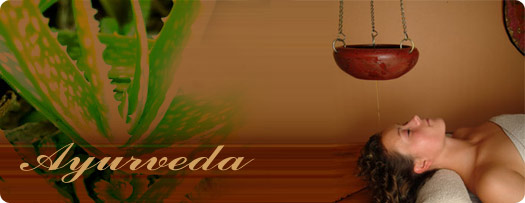
Ayurveda (Devanāgarī: the 'science of life') is a system of traditional medicine native to India,and practiced in other parts of the world as a form of alternative medicine. In Sanskrit, the word Ayurveda comprises the words āyus, meaning 'life' and veda, meaning 'science'. Evolving throughout its history, Ayurveda remains an influential system of medicine in South Asia.The earliest literature of Ayurveda appeared during the Vedic period in India. The Sushruta Samhita and the Charaka Samhita were influential works on traditional medicine during this era. Ayurvedic practitioners also identified a number of medicinal preparations and surgical procedures for curing various ailments and diseases.
Ayurveda has become an alternative form of medicine in the western world, where patents for its medicine have been passed, and the intellectual property rights contested by Western and Indian institutions.Ayurveda is considered to be a form of complementary and alternative medicine (CAM) within the United States of America, where several of its methods—such as herbs, massage, and Yoga as exercise or alternative medicine—are applied on their own as a form of CAM treatment.
As a traditional medicine, many Ayurveda products have not been tested in rigorous scientific studies and clinical trials. In India, research in Ayurveda is largely undertaken by the statutory body of the Central Government, the Central Council for Research in Ayurveda and Siddha (CCRAS), through a national network of research institutes. A systematic review of Ayurveda treatments for rheumatoid arthritis concluded that there was insufficient evidence, as most of the trials were not done properly, and the one high-quality trial showed no benefits.A review of Ayurveda and cardiovascular disease concluded that while the herbal evidence is not yet convincing, the spices are appropriate, some herbs are promising, and yoga is also a promising complementary treatment.
Despite these misgivings, some ayurvedic products, mainly herbs used for phytotherapy, have been tested with promising results. Turmeric and its derivative curcumin appears to have beneficial properties.Tinspora cordifolia has been tested. Among the medhya rasayanas (intellect rejuvenation), two varieties of sage have been been tested; one improved word recall in young adults,and another improved symptoms in Alzheimer's patients.In some cases Ayurvedic medicine may provide clues to therapeutic compounds. For example, derivatives of snake venom have various therapeutic properties.Many plants used as rasayana (rejuvenation) medications are potent antioxidants. Neem appears to have beneficial pharmacological properties as well.

No comments:
Post a Comment